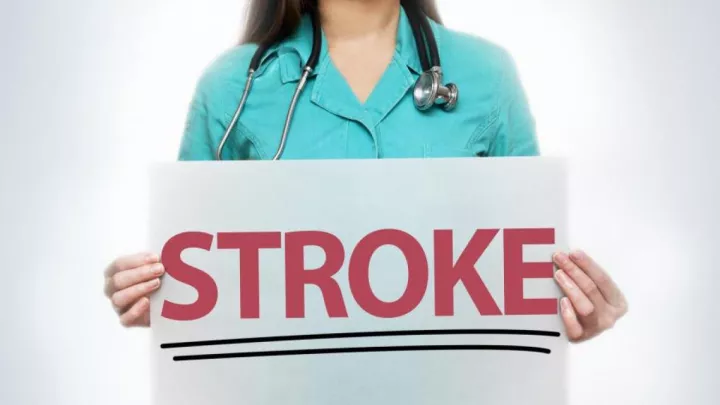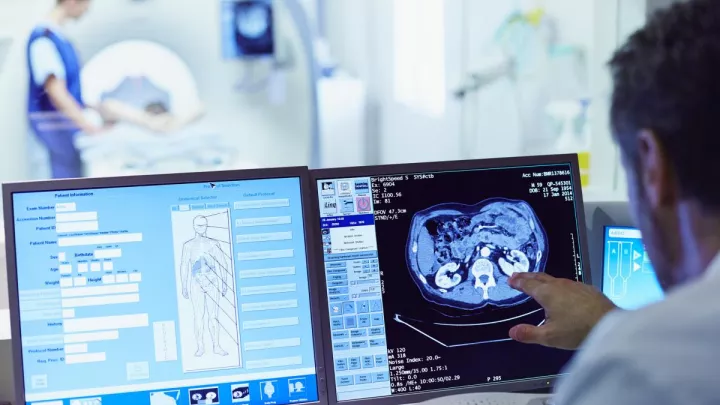Can a stroke cause dementia?

A stroke or a cerebrovascular accident, is a serious condition affecting the blood vessels in the brain. When a blood vessel carrying oxygen and nutrients to the brain is blocked or ruptures, brain cells die, and the brain cannot get enough blood and oxygen (ischemia). This can also cause permanent damage to brain cells if blood flow isn’t restored quickly. Cognitive decline can occur depending on which part of the brain is affected.
Can a stroke cause dementia?
About one-quarter of people who have had a stroke will develop dementia after a few months. Clinical neuropsychology expert Vaishali Phatak, PhD, explains how stroke can cause dementia.
“Stroke affects areas of thinking such as memory, speech and language, reaction time, and attention,” says Dr. Phatak. “Those with stroke-related cognitive changes are diagnosed with two conditions depending on severity: mild cognitive impairment or vascular dementia.”
With mild cognitive impairment or MCI, people notice their memory and mental function have changed. That includes decision-making, train of thought, judgment, and following a conversation. Usually, these changes don’t impact daily life and activities. MCI can increase the risk of dementia or other brain disorders. Vascular dementia is the more severe cognitive diagnosis.
“Vascular dementia is a difficulty with thinking abilities that are severe enough to affect people’s abilities to care for themselves,” says Dr. Phatak. “It can occur after a single stroke or a series of mini-strokes. When cognitive functions change after a stroke, it happens more abruptly and noticeably. If vascular dementia happens after mini-strokes, there’s a more gradual onset of cognitive deficits.”
Dr. Phatak also says stroke can worsen dementia. It’s important for individuals who have Alzheimer’s disease or dementia due to Parkinson’s disease to take care of their vascular health because a stroke can intensify dementia.
What causes vascular dementia?
Conditions that disrupt the flow of blood and oxygen to the brain and damage blood vessels in the brain cause vascular dementia. Individuals with vascular dementia often have abnormalities in the brain seen on MRI scans. These include previous strokes that can be small with unnoticeable symptoms that cause widespread damage to the brain.
Some people with vascular dementia can also have “mixed dementia,” which includes brain damage caused by Alzheimer’s disease and vascular disease.
What are the risk factors of post-stroke dementia?
Individuals don’t always experience dementia symptoms after a stroke. Risk factors for developing dementia after a stroke include:
- Previous stroke- Someone who had a prior stroke might have cognitive deficits, and another stroke can cause further decline
- Heart attack- A person who survives a heart attack can have complications with blood vessels in the brain
- Diabetes- Small blood vessels can be impaired and increase the risk of stroke
- Atrial fibrillation- A heart condition that can increase the risk of stroke due to compromised blood vessels in the brain
- High blood pressure- Damage to blood vessels in the brain increase the risk of hemorrhagic stroke
Additionally, being overweight or obese, not exercising, drinking too much alcohol, and smoking can increase the risk of damage to the blood vessels in and around the brain or cause blood clots to develop. Family history and age (individuals over 65) also contribute to a greater risk for vascular stroke.
What are the symptoms of vascular dementia?
Dr. Phatak explains that vascular dementia impacts memory, thinking and behavior changes. Other symptoms include:
- Changes in sleep patterns
- Confusion
- Vision problems
- Motor skills
- Problem-solving
- Getting lost
- Forgetting events
- Hallucinations or delusions
- Misplacing items
How do you treat stroke-related dementia?
There is no cure for dementia, but treatments can help with symptoms and keep the cognitive decline from worsening. It’s best to talk to your doctor about your symptoms and develop a treatment plan. Besides medications, doctors may suggest tips for managing dementia, such as making lists, sticking to daily routines or playing games that encourage cognitive functions.
Making healthy life choices and lifestyle changes can reduce the chances of getting vascular dementia. Quitting smoking, exercising, reducing alcohol consumption and adopting a healthy diet are just a few ways to improve vascular health.
Are you managing dementia care?
If you or a loved one are having trouble with things like misplacing items, forgetting events or remembering directions, we can help. Call us at 800.922.0000 to schedule an appointment with one of our specialists.







